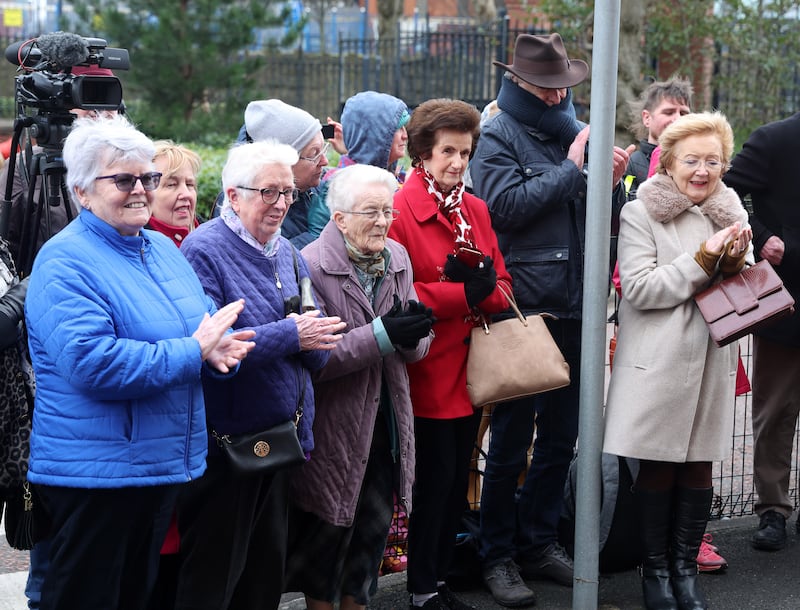The achievements of Irish speaker and translator Maighréad Nic Mhaicín have been remembered at her former school in Belfast almost 125 years after her birth.
Also a writer and scholar of Russian, Ms Nic Mhaicín was honoured with an Ulster History Circle blue plaque.
It was unveiled at St Dominic’s Grammar School on the Falls Road to coincide with International Women’s Day.

Born in Dungloe, Co Donegal on March 12 1899, Ms Nic Mhaicín was the daughter of Margaret and John Macken, a member of the Royal Irish Constabulary.
The family moved to Ballymena and then Belfast where they lived at Leeson Street and Hawthorne Street.
Leaving school aged 13 to work in a local blouse factory, she was later awarded a scholarship to attend St Dominic’s.
She was described as an outstanding student, achieving a first class exhibition in her senior grade and coming first in Ireland in English composition in 1916.
- Legacy of Belfast-born novelist and screenwriter Brian Moore celebrated in his home cityOpens in new window
- DUP education minister Paul Givan learns Ceili dancing and Irish phrases during school visitOpens in new window
- Plans to transform disused boxing club into thriving Irish-language hubOpens in new window
Graduating from Queen’s University Belfast with a first-class honours degree in Celtic Studies and French in 1920, she won a scholarship to study an MA in French and Celtic Philology at the Sorbonne.
It was while in Paris that she first learnt Russian.
A renowned Irish speaker, she was also fluent in French and German.
Her translations of Russian literature to Irish include Chekov’s play The Cherry Orchard An Silín-Ghort (1935); a selection of his short stories Gearr-Scéalta Cuid 1; and, a selection of Turgenev’s short stories Scéalta Sealgaire.
She also translated works in English and French to Irish.
Ms Nic Mhaicín travelled to the former USSR and worked as a translator, later marrying Irishman Patrick Breslin in Moscow.

She returned to Ireland in 1937 to give birth to a daughter, Máiréad, but was refused permission to return to Moscow and Patrick, also a translator, was banned from leaving the USSR.
Tragically, he died in a Gulag labour camp in Kazan in 1942 and it was many years later before Ms Ms Nic Mhaicín found out what had happened to him.
She settled in Dublin and was a co-founder of the Department of Russian at Trinity College and lectured there until her retirement in 1969.
She died in 1983.

Chris Spurr, chair of UHC, said: “Maighréad Nic Mhaicín is an inspiration as someone who overcame many obstacles to achieve excellence as a scholar, a writer and translator.
“Almost 125 years since her birth in Co Donegal, the Ulster History Circle is delighted on International Women’s Day to commemorate her achievements with a blue plaque at her former school in Belfast.”









